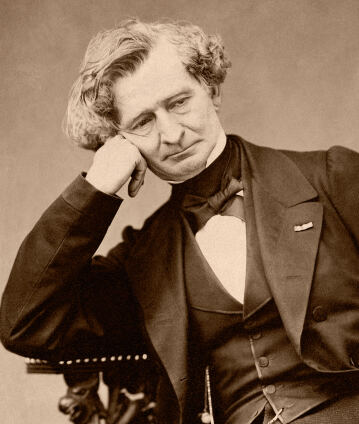Hector Berlioz
Composer
Hector Berlioz described his own life as an “improbable novel” – and indeed, with its adventurous ups and downs between spectacular success and equally spectacular disasters, it offered sufficient material for a literary treatment. The composer, who was constantly plagued by financial worries and who also worked as a journalist throughout his life, unceremoniously took on the latter himself with his colourful Mémoires, which owe more to fiction than to truth.
Berlioz was born in La Côte Saint-André bordering the French Alps in 1803. Like his father, he was supposed to become a doctor, so he began his studies in Paris at the Faculté de Médicine of the Université Royale de France, although he was more drawn to opera than anything else. He also spent a lot of time in the library of the conservatoire, where he studied scores. In 1826, Berlioz gave up his medical studies, which he had only half-heartedly pursued anyway, to join the composition class of Jean-François Lesueur. By this time, he had already achieved a certain recognition, particularly with the successful performance of his Messe solennelle. In 1830, his cantata La dernière nuit de Sardanapale, which has survived only as a fragment, won him the Prix de Rome – the most coveted composition prize France had to offer, which included a scholarship for a stay in Rome. However, Berlioz’s troubled financial situation improved only marginally as a result of this success. Shortly before his departure for Italy, the pivotal concert of his career to date took place: the successful premiere of the Symphonie fantastique. The event led to a series of prestigious commissions – and further successes with works such as Harold en Italie and Roméo et Juliette. His opera Benvenuto Cellini, on the other hand, with its literary ambitions, failed spectacularly, although Berlioz described this piece in particular as his “favourite score”. The composer never saw an adequate performance of his opera Les Troyens, which dominated the last years of his life. Only a shortened – but successful – version was staged in 1863.